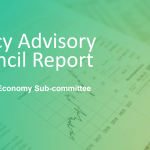CBN floats Naira, dollar rate
… Naira now N664.04/$
… Experts react
The Central Bank of Nigeria (CBN) has collapsed all foreign exchange segments into the Investors and Exporters (l&E) window.
By this decision, the apex bank has reintroduced the “Willing Buyer, Willing Seller” model at the I&E Window thus leaving the window as the only trading platform for Forex.
The CBN has also put an end to its RT200 Rebate Scheme for the repatriation of Forex by exporters and the Naira4Dollar Remittance Scheme, with effect from 30 June 2023.
A statement signed by Dr Angela Sere-Ejembi, Director Financial Markets said “all eligible transactions are permitted to access foreign exchange at this I&E window”.
In addition, “applications for medicals, school fees, BTA/PTA, and SMEs would continue to be processed through deposit money banks”.
The statement said, “the operational rate for all government-related transactions shall be the weighted average rate of the preceding day’s executed transactions at the I&E window, calculated to two (2) decimal places”.
The CBN has also proscribed “trading limits on oversold FX positions with permission to hedge short positions with Over The Counter (OTC) futures. However, limits on overbought positions the CBN said will be zero.
The bank has re-introduced order-based two-way quotes, “with bid-ask spread of N1 with all transactions to be cleared by a Central Counter Party (CCP).
Ejembi disclosed that Order Book was reintroduced to ensure transparency of orders and seamless execution of trades.
The operational hours of trades will be from 9am to 4pm, Nigeria time.
Following from this CBN decision, market forces of demand and supply will now determine the fate of the Naira at the I&E window.
This has now rested the clamour by multilateral institutions like the World Bank and the International Monetary Fund (IMF) for Nigeria to float her exchange rate.
At the end of trading on Wednesday, the Naira closed at N664.04/$.
There are strong indications that the free floating of the Naira may not be unconnected with recent statement credited to Mr. Wale Edun a close associate of President Bola Tinubu that the exchange rate will soon be unified.
Edun recently told Bloomberg that other things needed to be put in place before the full exchange rate unification.
He emphasized that the exchange rate unification is “quite imminent, no date has been set, but as I said, I think it’s already moved, there’s already movement in that direction but it’s very difficult to put the date on it and I don’t think it would be long at all”.
Foreign Investment expert Charles Robertson of Renaissance Capital said “Nigeria has become investable again. Attracting foreign money is wise when local savings are in short supply”.
On his part Professor Uche Uwaleke a Financial Economist and Professor of Finance and Capital Market in the department of Banking and Finance of the Nasarawa State University Keffi urged the CBN to “implement the forex unification “in a way that does not cause massive distortions in the general price level.
He argued that “this sudden naira devaluation may draw foreign portfolio investments which is part of the reason the stock market is surging.
Uwaleke advised the authorities that “the unification of exchange rates should not be a one step process but should be implemented over a period of time however short it may be.
“Empirical evidence suggest that reforms are more successful when they are sequenced and implemented in phases. This is against the backdrop of the oil subsidy removal which, taken together, can result in galloping inflation and rising poverty level.
“So, while fiscal and monetary policy reforms are welcome, absolute care should be taken to strike the right balance and minimize their unintended consequences.
Mr Gbolade Idakolo, Managing Director/CEO SD&D Capital Management Limited said the Naira free float, “is in reaction to the policy pronouncement made by the president in his inaugural address as regards exchange rate liberalisation.
“The floating of the Naira at N664/$ will bring it closer to the black market rates and this would lead to a free market system that allows market forces to determine rate.
“This would allow availability to determine the rate and eliminate hoarding.
Idakolo also noted that the free float/ Naira unification “would also encourage foreign direct investment into the economy as restrictions limiting free flow has been lifted.
“On the long run as the economy becomes stronger, the Naira would begin to appreciate against the Dollar and the economic activities would now determine the strength of our currency going forward.
For currency speculators, Prof Uwaleke believes that “economic agents who are keeping dollars as a store of value may not sell.
“This is because the demand for US Dollar is likely to rise following the increasing inflation expectations on the back of naira devaluation and fuel subsidy removal.
“So, exchange rates may still go up before coming down as the expected boost in forex supply may not materialize soon”.
Idakolo on his part believes that “those that are speculating should know the risk involved. The market reaction can go either ways before the market stabilizes.
“Initial frenzy could lead to a rush to sell but definitely the dollar would presently gain strength over the Naira for a while before the market stabilizes”.




